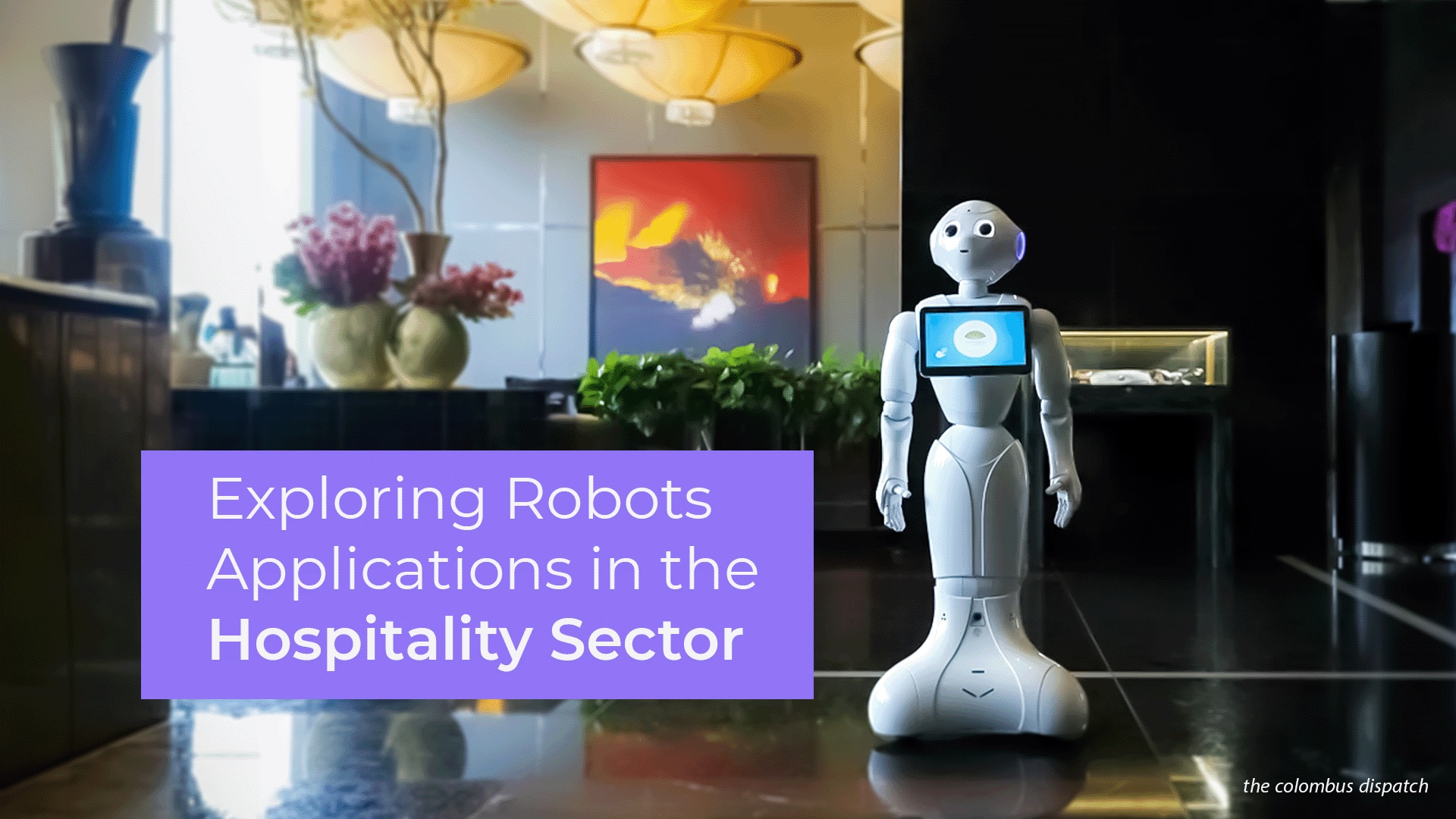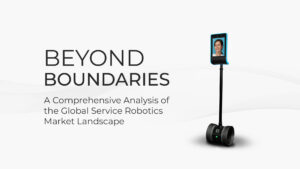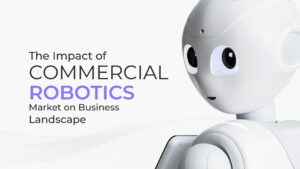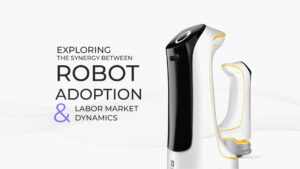The hospitality industry is known for its emphasis on customer service, quality, and consistency. The ever-increasing need for better customer service and experience has led to the adoption of robotics technologies in the hospitality sector. As a result, robotics technology is gaining traction in multiple areas of this industry, especially in hotels and restaurants.
The emergence of robotic solutions in the hospitality sector has sparked the curiosity of many, with many questions being raised on the effectiveness, reliability, and sustainability impacts of robots in the industry. This blog post will explore various aspects of robotic applications in the hospitality sector and the benefits and limitations of adopting these technologies.
Areas to explore
- Some Use Cases of Hospitality Robots
- Benefits of Robot Applications in the Hospitality Sector
- Limitations of Robot Applications in the Hospitality Sector
- The Future of Robot Applications in the Hospitality Sector
- Conclusion
Some Use Cases of Hospitality Robots
In recent years, robots have become more prevalent in the hospitality sector, taking on tasks such as cleaning, room service, receptionist, and even delivering food. Here are some of the types of robots being used in the hospitality sector:
Service Robots:
These robots, like Pepper, are designed to interact directly with customers, providing them with information and recommendations. They are mainly placed at the front desk or kiosks of the hotels and are used for handling basic activities such as answering inquiries.
Delivery Robots
The majority of hotels provide guests and visitors with restaurants within the premises. Robots like BelleBot or KettyBot can be used for delivery purposes. Robots for hotels are equipped with intelligent 3D sensors and optimal path navigation, providing an unmatched dining experience in a controlled setting.
Cleaning Robots
These robotic solutions use advanced sensors, cameras, and other cutting-edge technologies to enhance the cleaning and maintenance of facilities, including the removal of waste, debris, and pollutants.
Room Service Robots
These robots are designed to deliver food, drinks, and other necessities directly to hotel rooms.
Benefits of Robot Applications in the Hospitality Sector
The application of robots in the hospitality industry has some unique benefits that make them a popular choice among business owners, managers, and customers. Some of the most notable benefits of robotic solutions in the hospitality industry include:
Significant Cost Reductions
The adoption of robots can lead to significant cost reductions in the hospitality sector. Robots can minimize hiring additional human labor when demands increase, which is generally the highest cost for these businesses. Adopting robots helps reduce labor costs, thus making the hospitality industry more efficient in its operations.
Improved Efficiency
Robotic technologies have been proven to improve efficiency in the hospitality industry. For Example, cleaning robots can clean rooms much more quickly than humans while ensuring thorough cleaning. This allows hotel staff to focus on other tasks while the cleaning robots take care of the cleaning.
Enhanced Customer Experience
Robotic applications can offer a better customer experience in the hospitality sector. This can be seen in various tasks they perform, especially with disinfecting or cleaning rooms, or guiding the guests to their allocated room and more.
Improved Safety
Finally, robotics technologies can improve the safety of customers and employees in the hospitality sector. Cleaning robots navigate and perform cleaning tasks using sensors that can detect potential hazards, thus minimizing the potential risks.
Limitations of Robot Applications in the Hospitality Sector
While robots hold the potential to revolutionize the hospitality industry, it is essential to acknowledge some of the potential drawbacks of using these technologies. Some of the most significant disadvantages of robotic solutions in the hospitality industry include:
Can’t be Left Unsupervised
The adoption of robots in the hospitality sector still needs to be supervised. This means humans must usually control or manage them while robots perform that task they are assigned with. Additionally, the chances of robots replacing humans in performing low-skill tasks can have a negative impact on the economy.
Expensive Adoption Costs
Implementing robotic solutions in the hospitality sector requires significant investment, which could make them unviable for many small businesses.
The Limited Scope of Robotics Technologies
Robotic solutions are still primarily restricted to specific functions in the hospitality industry. They are limited in their ability to improvise and interact in ways that humans can, thus limiting their scope to specific tasks within a controlled environment.
The Future of Robot Applications in the Hospitality Sector
The adoption of robotic technologies in the hospitality sector is set to grow dramatically in the coming years. Automated technologies can improve efficiency, reduce costs, and enhance customer experience, making them popular among business owners.
While we cannot entirely replace human interaction in the hospitality sector, robotic solutions can bring a new dimension that complements the experience for employees and customers alike. Undoubtedly, the hospitality industry will undergo significant transformations with the rise of robotic solutions – only the scope of these changes remains to be seen.
In the End
In conclusion, the impact of robotics in the hospitality sector cannot be understated. While it is still in its infancy, the benefits of robotics applications outweigh the negatives. The rise of robotics solutions brings a new dimension to the hospitality experience. The adoption of robotics technologies in the industry is on the rise, and we can only expect to see more exciting developments in the coming years.




